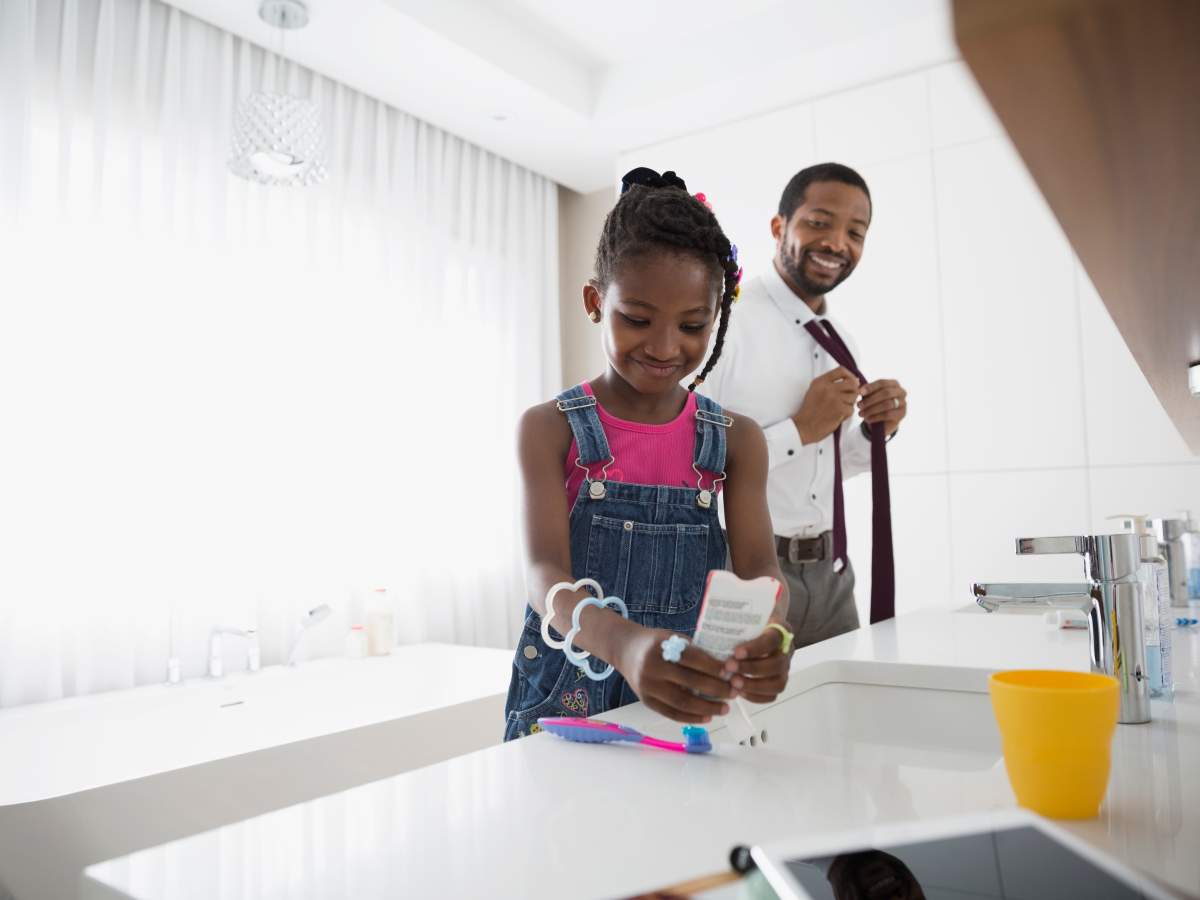It may come as a surprise that the bathroom isn’t the dirtiest room in your house. (That honour goes to the kitchen.) But there’s no doubt that all the washing up, flushing down and sloughing off that goes on in there is bound to cover everything with bacteria.

According to a study carried out by NSF International (National Sanitation Foundation) in which scientists swabbed 30 surfaces in 22 homes, coliform bacteria (which is found in fecal matter) was found on nine per cent of bathroom faucets and in 27 per cent of toothbrush holders. Add to that the fact that the moisture from showering allows germs to proliferate easily, and you have the ideal breeding ground for some pretty gross things.
WATCH BELOW: This is Canada’s best bathroom

For this reason, there are some items in your bathroom that require regular cleaning or replacing. Scientist and germ expert Jason Tetro, who has authored the books The Germ Code and The Germ Files, spoke to Global News about the most vulnerable items in your bathroom and how to ensure they don’t turn into a virtual Petri dish of bacteria.
Loofahs, washcloths and shower poufs
- WestJet will reverse cramped seat configuration after widespread backlash
- Flair Airlines reroutes strategy to lure corporate travellers — without a business class
- Will more Chinese EVs be a ‘self-inflicted wound’ for Canada’s auto sector?
- Flu cases, hospitalizations continue to fall after 3-year peak over holiday
He says to wash them in hot water mixed with either soap or white vinegar. The water needs to be hot because bugs die off at 71 degrees C and give the item a fresh new bacteria-free life. If you don’t want to throw them in the washing machine, it’s fine to soak them, but he says to let the items sit for at least 20 to 30 minutes. The soap or vinegar will help break down the oils.

Get weekly health news
“You should clean these about once a month, although you can also just measure by doing a visual test,” he says. “If things start to get gunky, wash them right away.”
Toothbrushes
Your dentist likely gives you a new toothbrush after every cleaning visit, which typically happens once every three to six months, and that can be a good gauge for when it’s time to change out your brush. Although, if the bristles are splayed and have lost all rigidity, that’s usually a sign that you need to get a new toothbrush.
READ MORE: How to tell if the food in your freezer has gone bad
“It’s important to run your toothbrush under really hot water for a few seconds after every time you brush,” Tetro says. “That’s going to help a lot with curbing germs or bacteria. And keep it about six feet away from the toilet and always keep the lid closed.” That’s because germs are airborne and when you flush the toilet, it emits what’s known as “toilet plume,” aerosolized feces that gets shot into the air.
LISTEN: The Germ Guy shares his thoughts on where germs live in your house
Razors
Tetro says this really depends on how often you use your razor — the more you use it, the more likely it is to pick up microbes.
“I’d say all razors should be replaced every two weeks, but if you’re a man and you use it every day, you’ll probably end up having a blunting issue of the blades before you have a microbial issue.”
If you’re still concerned about the microbes, he says to use alcohol to clean off any top layers of bugs, but if you see biofilm on the blades, you’ll need to soak it in hot water for at least an hour.
Makeup brushes
These are notoriously under washed items that can wreak havoc on your skin by causing breakouts. Not to mention that dirty brushes rife oil, debris and bacteria won’t apply or blend product as well. Dermatologists advise washing your makeup brushes as frequently as once a week, although it’s understandable if that isn’t realistic.
Legendary makeup artist Bobbi Brown shared this rule of thumb with Allure: “Brushes that are used around the eyes should be cleaned at least twice a month. All others can be washed once a month.”
READ MORE: How to pack a carry-on for a week-long trip
To clean them, use lukewarm water and a mild soap, pat dry on a clean towel, reshape the bristles and dry them with their heads over the edge of the sink — never lay them flat because the bristles won’t take their natural shape again and you risk mildew getting in.
When it comes to eyeliner and mascara, Tetro says to simply swap them out every six months since there’s no effective way of cleaning them.
Hairbrush
Much like shower poufs and loofahs, hairbrushes can be effectively cleaned by soaking them in hot water with a soap or vinegar mixture. He says that he will usually soak his overnight, as that will really give the cleaning agents a chance to break down the oils from hair that sit on the bristles.
In general, hairbrushes should be replaced once every six months to one year. If you see signs of wear and tear like broken loose or missing bristles, replace it immediately as those bristles could damage your hair by catching on it and ripping it.
If, however, you’ve had a lice situation at home, it’s best to just toss it and get a new brush.
“When you’re talking about an insect, that’s a completely different world,” Tetro says. “The idea of hot water works for bacteria, but lice is increasingly resistant to solutions. It’s best to just replace your brush.”










Comments